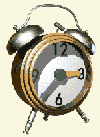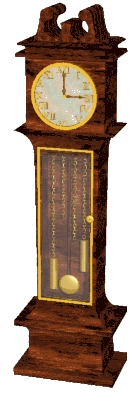Money
Currency
|
 |
The British currency is the pound sterling - £ which is divided into 100 pence - p.
|
Coins and notes come in the following denominations:
|
| Coins | Notes |
- 1p and 2p (copper)
- 5p, 10p, 20p and 50p (silver)
- £1 (gold)
- £2 (gold and silver)
|
- £5, £10, £20 and £50,
each denomination has its
own size and colour
|
Note: Scottish banks issue their own notes, including in £1 denominations.
In England and Wales shopkeepers may refuse Scottish notes, but they are legal tender
- if you have any problems, exchange them at a bank.
|
|
You will, no doubt, hear the slang term 'quid' meaning pound sterling.
To sound like a native, take note: 'quid' does not become plural, as in five quid (not quids).
|
|
| Changing Money |  |
Most banks and major post offices will be able to change money for you. And in the larger cities you will find bureau de change offices, usually in places like train stations or travel agencies.
But be careful. Commission rates and fees vary from one bureau de change to another and in cities like London charges can often be extortionate. Check the rates and fees before you change your money, and remember that it is often worthwhile to shop around.
The cheapest rates are often at the bureau de changes at international airports (but this is not guaranteed). After that, banks are usually your best bet for reasonable charges - changing money or cheques in hotels should be a last resort as they are normally relatively expensive.
|
|
 | Carrying money |  |
There are no exchange controls in Britain, so you can basically bring in as much cash as you want and there are no limits on the amount of travellers cheques you can change.
|
The safest way to carry money is in travellers cheques as they protect you, to some degree, against theft. Make sure that you keep a record of your cheque numbers and the ones you have cashed in a place separate from the cheques themselves.
In the UK, travellers cheques are rarely used for everyday transactions, so you will often have to change them at banks regularly in advance of your need. The exceptions are some places that frequently come into contact with people using travellers checks (such as major tourist sites in areas like London) who may be able to change them for you, but always check first.
This does make travellers cheques a little inconvenient, but they are still worth it for the safety aspect.
|
 |
 |
 |
 |
Major credit cards (eg Mastercard, Visa, Diners Club and American Express) are widely accepted and they can also usually be used to withdraw cash from automated teller machines (ATMs).
However, you will need a 4-diget Personal Identification Number (PIN) in order to use ATMs in the UK, so make sure that you know yours and that it will be compatible - if you haven't got one, ask your bank to issue one and check which network to use.
|
Cash is by far the most convenient way to carry money, but it is also the most risky - if it is stolen it is gone for good. Nevertheless, it is always a good idea to have a small amount of cash on you, in case you can't get to a bank for a day or so.
|
Whatever way you decide to carry your money, take precautions. Make sure that you keep it out of sight of would-be thieves - carry it in an inside pocket, or consider investing in a money bag or pouch to carry it under your clothes. And take extra care in crowded areas.
Use common sense and you should be fine.
|
|
Banks
The major high street banks in England and Wales are Lloyds, Barclays, Midland and National Westminster (Nat West). In Scotland they are the Bank of Scotland, the Royal Bank of Scotland and the Clydesdale Bank.
Banking hours vary, but all should be open Monday-Friday 9.30am-3.30pm. In larger towns and cities banks will normally stay open until at least 4.30pm and some are open on Saturday mornings.
Most banks will have an ATM (Automated Teller Machine) outside the bank where you can draw out money with a credit or cash card. Many of these are available to use 24 hours a day, but some do still close for a few hours during the night.
If you can not find a bank, most larger supermarkets and some petrol stations will also have ATMs available where you can withdraw cash.
|
Note: Different ATMs are compatible with different credit cards
so check you use an appropriate one.
|
|
Taxes and Costs
|
Costs: Whether you consider the UK to be an expensive or cheap place to visit, of course, depends on where you are travelling from. But in general terms, it is not particularly cheap. Costs also vary regionally, with London being the most expensive place to visit.
Tax: The British version of a sales tax is called VAT (Value Added Tax) and is currently at 17.5%. This is almost always included in the prices you will see in shops, pubs, restaurants and hotels.
Tax Refunds: Visitors from countries outside the European Union can sometimes claim refunds for VAT on goods bought within the EU. There is a scheme called the Retail Export Scheme, but not all shops participate and services such as hotel services are excluded.
If a store participates in the scheme it will normally display a sign in the window. You should ask for a form (form number 407) when you make a purchase. Then you present the goods, form and invoice to customs as you depart from the EU, the form is returned to the store and a refund forwarded to you, minus a small charge.
|
|
Discounts and Concessions
|
If you are a student, an International Student ID Card (ISIC) will entile you to reduced rates on public transport, and reduced admission fees to many museums, theatres and other attractions.
And if you are under 26 years old, you can get a Federation of International Youth Travel Organisations (FIYTO) card or a Euro-26 card which will get you similar discounts. You should be able to get these from student unions, student travel agencies or hostelling associations.
For older visitors, if you are over 60 many attractions offer reduced rates, although you might be asked to prove your eligibility. In addition, discount cards are available for bus and rail travel.
It is also worth noting that if you are particularly keen to visit lots of heritage sites, gardens or stately homes there are ways to save money. For example if you want to visit lots of English Heritage sites you should consider a 14 or 21 day pass or a years membership which would allow you free entry to all English Heritage properties.
Passes are also available for other organisations, including the National Trust and the national heritage organisations for both Wales and Scotland - Tourist Information Centres should be able to advise on the various passes available.
|
|
| Shop Opening Hours |
 |
General opening hours for shops are 9am-5.30pm Monday-Saturday. However, in the larger towns you will probably find shops open late some evenings (usually Thursday or Friday), and that more and more are opening on Sundays albeit with reduced hours. |
The exceptions are supermarkets, which tend to be open 7 days a week with longer opening hours - usually until 8pm or 10pm most evenings, with reduced hours of 10am-4pm on a Sunday. Some in larger towns now open 24 hours, but it is worth checking first.
Also, the large out-of-town shopping complexes on the outskirts of many cities tend to have extended opening hours, but again it is advisable to check first. In addition, many petrol stations are open 24 hours (but not all) and these often have small shops attached where you can pick up essentials.
As you head out of the larger towns and cities, you will probably find that some rural shops still follow the tradition of an early closing day (usually a Wednesday) when the shops close at 1.00pm, so make sure you are well prepared.
On public holidays you will find that some shops open and some shops do not - so don't count on being able to get what you want. But as a general rule banks will be closed, most supermarkets will be open (although with reduced, Sunday opening hours), and in larger towns many shops will open.
|
|
Shopping
The UK is not renowned for being a place to go for cheap shopping, but while you visit you might find that for some items you can find relative bargains. For example, if you have a passion for antiques you will prices may well be cheaper than at home. And if you are a fan of a particular UK chain store (for example Laura Ashley or the Body Shop) prices will generally be cheaper in Britain.
Products to look out for include woolens, cashmere, British china and glassware, antiques, and British brand names such as Barbour, Filofax and Doc Martens.
Almost every town and city in the UK will have a main street, often called the High Street, where you should head for if you want to go shopping. You will ususally find branches of high street stores such as Boots the Chemist, Marks and Spencer, Woolworths and Debenhams. There will also probably be some smaller specialist shops.
You may also find some towns that as a whole specialise in a particular product. For example some towns are full of antique shops, whilst others may specialise in second hand books. And if there are lots of potteries or glassworks in the area the town will probably be full of shops selling crockery or glassware.
Remember that if you plan to go on a massive shopping spree, you may be subject to duty charges or excess baggage fees. So find out what charges you will be subject to, plan your budget in advance, and stick to it!
|
 |
Bargaining
If you are at a market or a second hand shop, it might be worth your while to try to bargain, although not every establishment will be willing to indulge you. Generally though, bargaining is not the done thing in high street shops or restaurants.
However, you may find that discounts are offered to certain groups, particularly students or young people, but you have to be carrying the appropriate identification.
|
|
Copyright © 1995 to 2016 Smooth Hound Systems
Smooth Hound Systems accepts no liability with regards to the accuracy of the information on this site.
Users are advised to double check information such as dates, times, prices etc.









